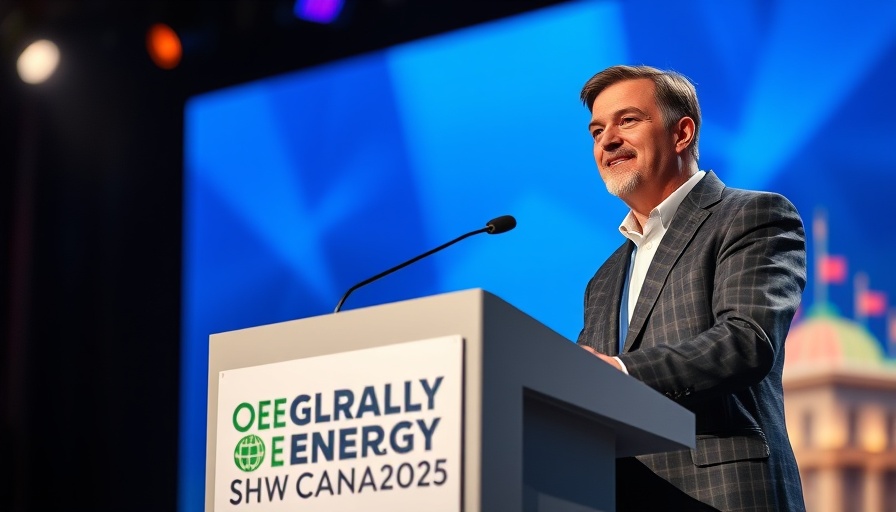
Understanding OPEC's Stance on Oil Demand
In a bold declaration at the Global Energy Show in Calgary, Haitham al-Ghais, the secretary-general of OPEC, laid out a stark vision of the future of energy. According to his address, global oil demand is set to rise by 24 percent by 2050, countering the often optimistic narratives surrounding net-zero emissions targets. This perspective not only highlights the challenges ahead but also raises critical questions about how the world intends to balance energy needs with environmental commitments.
What's Driving Oil Demand?
Al-Ghais made it clear that OPEC's forecasts stem from data-driven analyses, asserting that oil will still play a vital role in the global energy landscape, contributing approximately 30 percent of the energy mix by 2050. He emphasized that an estimated investment of US$17.4 trillion will be necessary to meet increased energy requirements, particularly in developing regions where demand is anticipated to surge. This situation reflects not only the global reliance on oil but also the complexity of transitioning to sustainable energy without compromising economic growth.
The Critique of Net-Zero Targets
At the heart of al-Ghais's comments was a pointed criticism of net-zero targets propagated by various international bodies, notably the International Energy Agency (IEA). He deemed these targets 'detached from reality', implying that swift transitions away from oil may not only be unrealistic but potentially damaging to economic stability and growth. Critics often believe that such statements from OPEC could resonate with energy-dependent countries that fear economic strain from sudden shifts to greener technologies.
Global Energy Trends and Future Predictions
The forecast for oil demonstrates ongoing global trends where energy production and consumption are intricately tied to national economies and geopolitical agendas. As societies grapple with the dual challenge of rising demand and climate change, analysts predict that debates over energy policies will intensify. This highlights the importance of creating energy strategies that consider long-term economic viability along with ecological sustainability.
Historical Context: Oil and the Global Economy
The implications of OPEC's forecasts rest on historical foundations. Since the 1970s, the oil market has been a cornerstone of the global economy, influencing everything from national policies to the livelihoods of millions. The persistence of oil in the energy mix suggests that any attempts to expedite a transition to renewables must account for this historical reliance and the current infrastructural realities.
Counterarguments and Diverse Perspectives
While OPEC takes a conservative stance on oil demand, advocates for renewable energy argue fervently about the need for immediate action to mitigate climate change impacts. They suggest that aggressive investment in technology could foster a quicker transition. Proponents of this vision believe innovation can create solutions that address both energy demands and environmental concerns, arguing that OPEC's outlook is overly cautious.
Local Impacts of Global Energy Policies
In Calgary and similar energy hubs, local economies are closely tied to oil production. The job market, economic stability, and even community development rely on the oil industry’s health. Understanding OPEC's projections is crucial for stakeholders in these areas, as shifts in energy policy at an international level can have direct repercussions on local economies.
Conclusion: A Call for Balanced Energy Solutions
The future of energy hinges on a complex interplay between rising oil demand, aggressive climate targets, and the geopolitical landscape. As Haitham al-Ghais pointed out, immediate shifts to a net-zero paradigm can seem detached from the on-ground realities faced by energy-dependent nations. The challenge now lies in constructing balanced solutions that fulfill both economic needs and environmental obligations. Engaging in ongoing discussions about energy policies while forging paths towards sustainability is imperative.
 Add Row
Add Row  Add
Add 




Write A Comment